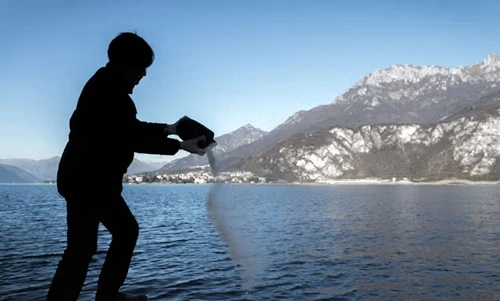No, it is not inherently illegal to spread ashes in the United States, but specific rules and regulations govern where and how this can be done. These rules vary based on the location, such as public land, private property, or bodies of water. Failure to comply with federal, state, or local laws can result in fines or other legal consequences.
Legal Framework for Spreading Ashes
Spreading ashes is generally allowed as long as it complies with local, state, and federal regulations. Here are the key considerations:
1. Private Property
- Spreading ashes on private property requires the owner’s permission. Without consent, the act could be considered trespassing.
- Homeowners can typically scatter ashes on their own property without legal issues.
2. Public Land
- Regulations for public land vary. For example, national parks allow ash scattering with prior permission, but specific areas may be off-limits.
- State parks have their own policies, so it is essential to check with local authorities.
3. Bodies of Water
- The Clean Water Act governs the disposal of cremated remains in U.S. waters. Ashes must be spread at least three nautical miles from shore, and biodegradable urns are recommended.
- Freshwater lakes and rivers are regulated by state authorities, and some may prohibit ash scattering.
4. Airspace
- The Federal Aviation Administration (FAA) does not explicitly prohibit scattering ashes from an aircraft, but the practice must not interfere with flight operations or create hazards.
Federal and State Guidelines
1. National Park Service Regulations
- The National Park Service generally permits ash scattering but requires visitors to apply for a permit and adhere to specific conditions, such as choosing a site away from trails or water sources.
2. State Laws
- State regulations vary widely:
- In California, ash scattering is allowed but must be reported to the state’s Department of Public Health.
- In Florida, ashes can be spread on uninhabited public beaches, but local ordinances may apply.
3. City and Local Ordinances
- Some cities have their own rules governing public spaces, such as parks or recreational areas, and may require permits or restrict the practice altogether.
Ethical and Environmental Considerations
- Respect for Others: Ash scattering should be done discreetly and away from crowded areas to respect the feelings and sensibilities of others.
- Environmental Impact: While ashes are generally safe for the environment, using biodegradable urns or containers ensures minimal ecological disruption.
Penalties for Non-Compliance
Violating ash-scattering laws can lead to fines or other penalties. For instance:
- Trespassing on private property without permission.
- Improper disposal in a protected area or prohibited location.
- Violating environmental laws, such as the Clean Water Act.
Best Practices for Ash Scattering
1. Seek Permission: Always obtain permission from property owners or relevant authorities.
2. Follow Regulations: Research federal, state, and local rules to ensure compliance.
3. Choose Biodegradable Materials: If using an urn or container, opt for biodegradable options to minimize environmental impact.
4. Notify Family Members: Inform loved ones of your plans to ensure mutual understanding and respect for the deceased’s wishes.
Related FAQs
Q1. Can I scatter ashes in a national park?
Ans: Yes, but you must obtain a permit and follow the park’s guidelines, which may include specific locations or restrictions.
Q2. Is it legal to scatter ashes at sea?
Ans: Yes, as long as it complies with the Clean Water Act. Ashes must be spread at least three nautical miles from shore, and biodegradable urns are recommended.
Q3. Do I need permission to scatter ashes on private property?
Ans: Yes, you must have the property owner’s consent. Without it, scattering ashes could be considered trespassing.
Q4. Can I scatter ashes in a public park?
Ans: It depends on local ordinances. Some parks allow ash scattering with a permit, while others may prohibit it entirely.
Q5. Are there any religious restrictions on ash scattering?
Ans: Religious views on ash scattering vary widely. Consult with spiritual leaders or refer to religious texts for guidance specific to your faith.
Conclusion
While spreading ashes is generally legal, compliance with local, state, and federal regulations is essential to avoid legal issues. Whether on land, at sea, or in the air, understanding the rules and respecting the environment and others ensures a meaningful and lawful farewell for loved ones.


